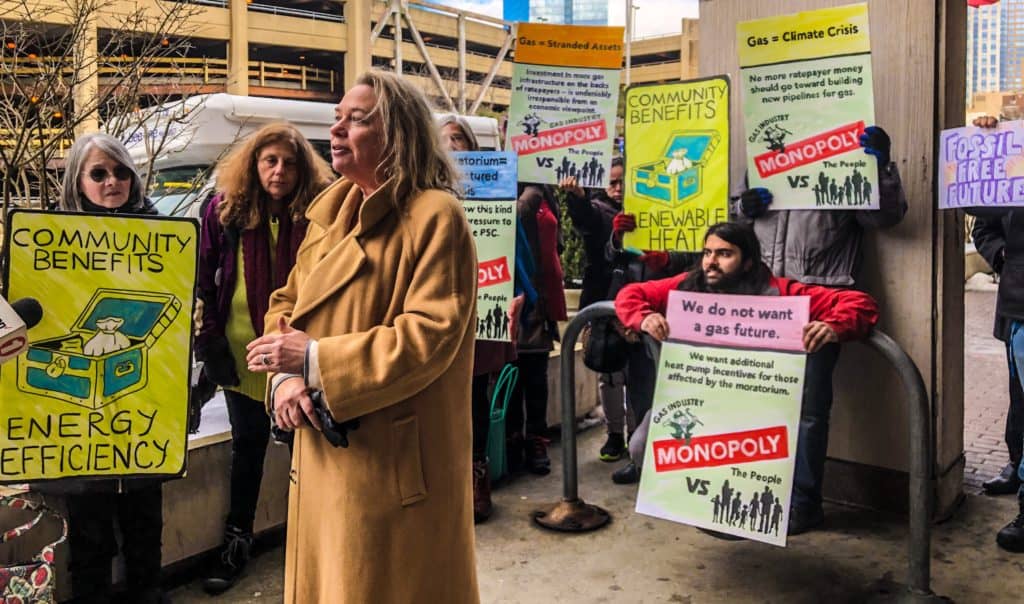
By Dan Murphy
Last week we reported on the sale of Indian Point, and the fact that the nuclear power generated at the Buchanan location in Westchester is no longer cost effective, and the power generated is no longer used for consumption by Westchester or New York City residents and businesses.
The discussion on Indian Point and the loss of power generated there when the plant closes in 2021 is happening at the same time that Con Edison has placed a temporary hold on any new natural gas lines in mid- and lower Westchester.
Con Ed made the announcement in January that it would not accept new natural gas customers in most of its Westchester County service area, effective in March.
“The demand for natural gas in our service area has been experiencing significant growth, primarily due to the construction of new buildings, the opening of new businesses, and conversions from oil to cleaner-burning natural gas in existing buildings,” said the company. “But all of this new demand for gas is reaching the limits of the current supplies to our service area.
“As a result, and to maintain reliable service to our existing natural gas customers on the coldest days, we will no longer be accepting applications for natural gas connections from new customers in most of our Westchester County service area beginning March 15, 2019. There are some areas in the northernmost sections of the county where we have more capacity and may still be able to accept new customers. Existing customers are not affected by the moratorium.”
Since that announcement, Gov. Andrew Cuomo and state legislators announced a $250 million Westchester Clean Energy Action Plan, which invests in programs to sustainably reduce energy consumption. Also, the state will analyze Con Ed’s claim of a tight natural gas supply in the region.
Last week, Con Ed announced that it had reached an agreement with a gas pipeline company that currently provides natural gas to lower Westchester County, to increase the capacity of the line, which offered a ray of hope for our increasingly energy-starved region.
But that agreement will not be ready until the end of 2023. The Business Council of Westchester questioned the four-year delay and the need for more natural gas supply for the county.
“Unfortunately, this potential increase to the available supply requires its own set of approvals,” said the BCW. “Con Edison characterized it this way: ‘The incremental capacity could be placed in service by November 2023.”’That’s 4 ½ years, if the approval goes smoothly, and at least 4 ½ years more of the moratorium on new gas hookups in most of Westchester.
“We applaud Con Edison for this initiative and other actions the company is exploring to alleviate the crisis. However, the underlying energy shortage remains a serious issue that is already taking a toll and will continue to loom over the region and threaten our economic viability. That’s why the BCW back in March formed the BCW Gas Moratorium Task Force, a cross-section of developers, business leaders of small, mid-sized and large companies, as well as planners and affordable housing advocates to propose solutions. New York State and others are calling for a shift to renewable energy sources. While this is a laudable goal, the realities are that implementation of virtually any of the technologies now being discussed are not going to be sufficient to meet the region’s energy demand.
“The BCW will be holding an energy conference May 10 with some of the top leaders in the energy field,” concluded the organization. “In the meantime, the BCW Gas Moratorium Task Force will continue to work on assessing the overall situation, working cooperatively with all involved parties to understand and determine the best paths forward.”
Con Ed needs more pipeline service to Westchester and eventually to New York City to feed the appetite for natural gas in the region. Indian Point provides electric power, which apparently the region no longer needs. The different types of energy needs, natural gas and electric, are why is does make sense that Indian Point will close while Con Ed seeks more pipeline access for natural gas.
A recent study shows that the energy from Indian Point will be replaced completely by a combination of efficiencies, an increase in clean energy resources and by incentivizing the reduced use of power during peak hours, by 2023.
“More aggressive use of energy-efficiency resources leads to lower costs and emissions than is seen in the reference scenario, and enables full displacement of Indian Point Energy Center’s 2016 level of energy with clean energy resources by 2022, the first full year of IPEC retirement,” states a 2017 report by Synapse Energy.
“The completion of the Champlain Hudson Power Express provides one option for accelerated production of low‐carbon energy beyond the Clean Energy Standard’s requirements and could supply more than 40 percent of the output of the IPEC. A combination of Clean Energy Standard‐mandated increases in renewable energy, Champlain Hudson Power Express (or equivalent renewable production), and the Clean Energy Standard’s assumed levels of energy efficiency can supplant 1.5 times the full output of IPEC by 2024,” states the report.
Con Ed and state government energy conservation organizations like New York State Energy and Research Development Authority received a bulk of the new state aid from the governor to try and prevent the moratorium, and those funds will be used to encourage alternative and clean energy and conservation.
The four-year delay for new customers will certainly put a hindrance on new development projects, new schools and new residential construction in lower Westchester, and specifically in the county’s southern cities of New Rochelle, Mt. Vernon, Yonkers and White Plains, which has seen billions in new development projects aimed at transit-oriented development sought by millennials.
Included in the $250 Westchester Clean Energy Action Plan are: $165 million in grants for heat pumps and gas efficiency for residential, multifamily, and commercial and industrial customers; an additional $28 million for new waitlisted customers to use alternative heating and cooling systems and adopt energy-efficient solutions; an additional $23 million in grants for existing ConEdison customers in the county to improve energy efficiency and reduce overall and peak energy demand; and an additional $32 million in low-cost New York Power Authority financing services to retrofit heating systems with clean energy alternatives.
Earlier this year, when Con Ed made its moratorium announcement, Westchester County government estimated that the moratorium will impact affordable housing along with New residential units at risk (16,000), new commercial space (2 million square feet), construction jobs (25,000), permanent retail jobs (5,000 to 7,000), residents in Westchester County (48,000), and rental income ($60 million a year).
The announcement by Con Ed is nothing close to a victory, or a settlement of the problem for Westchester, and some believe that Con Ed’s announcement in Westchester is the first step in announcing further moratorium’s in New York City and the metropolitan areas they serve.
The other part of this debate that has not been reported on is whether or not the green, pro-environment community will allow or permit any additional pipelines to ever be built in New York State. That argument has not been made by either side, not yet.





